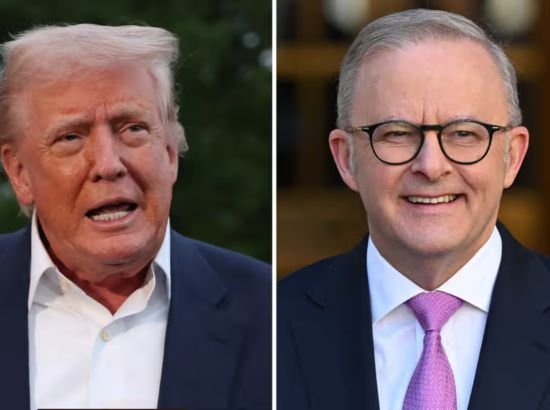
Prime Minister Anthony Albanese revealed he had a very warm call between him and former US President Donald Trump following Labor’s federal election victory, as both leaders discussed key issues including tariffs and the Aukus security pact. The conversation hints at a potential meeting between the two at the upcoming G7 summit in Alberta this June.
Speaking at the White House earlier in the day, Trump stated, “I’m very friendly with Albanese,” adding that he had no idea who Peter Dutton was. Despite Dutton’s attempts during the campaign to emulate some Trump-style policies, the former US president made it clear he did not recognize the Liberal leader. Trump went on to praise Albanese, calling him “very good” and noting their mutual respect.
The very warm call between the two leaders included discussions on Aukus—a trilateral security partnership between Australia, the US, and the UK—as well as Trump’s controversial 10% tariffs on Australian goods. These tariffs, introduced during the election campaign, drew sharp criticism from Albanese, who labelled them “economic self-harm” and “not the act of a friend.”
Albanese noted that the conversation with Trump was “positive and constructive,” adding that the two planned to meet in person in the future—possibly during the G7 summit in June. He also confirmed calls with several other global leaders including those of Canada, the UK, France, and Papua New Guinea.
Labor had aggressively countered Dutton’s attempts to align with Trump-style policies. From pushing public sector cuts to adopting slogans like “Make Australia Great Again,” the Liberal campaign echoed aspects of Trumpism. Despite these efforts, Dutton failed to resonate with voters, and even Trump showed disinterest in his political presence.
In his first post-election press conference, Albanese emphasized his optimism for the future, stressing Labor’s commitment to an “orderly and positive” government. “If we get this decade right, we can set Australia up for the many decades ahead,” he stated, reaffirming Labor’s vision for economic stability and social cohesion.